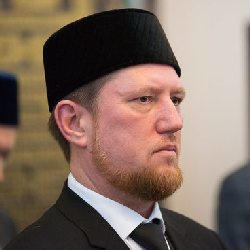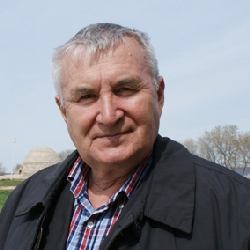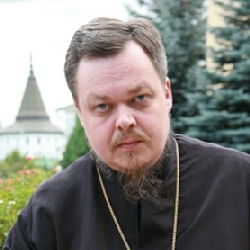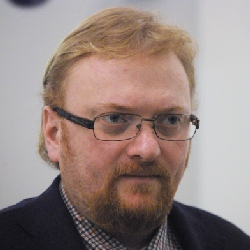‘Kazan has never been a Buddhist city, at least, from a relative historical perspective’
Questionnaire on the construction of a datsan for Buddhists in the capital of Tatarstan: 'for' and 'against'
A Buddhist temple is going to be constructed in Kazan. This news that was distributed by many regional mass media, drew public attention. Experts, including scientists, religious and social activists, who were asked questions by our newspaper, were not against the erection of the datsan in the city. However, one person did not approve the idea.
Temple with healers and astrologists
The news about the Buddhist temple that can appear in the capital of Tatarstan in the short run caused quite a stir in Kazan last week. Sesegma Bubeyeva, the chairwoman of the National Cultural Autonomy of the Buryatian People in Kazan, told Realnoe Vremya about the future datsan (Editor's Note: Buddhist university monasteries in the Tibetan tradition of Gelukpa located throughout Mongolia, Tibet and Siberia).
As she said, the local authorities gave a preliminary approval of the idea. What is more, a famous Buryatian sculptor Dashinim Namdakov, who made the statues of Zilants and winged barses near the Kazan Family Centre, is taking part in the project.
After the preparation of the necessary documentation, the Buddhist community is going to look for investors. The datsan can appear in Kazan even sooner than in Moscow where a stupa was set on the threshold of the very temple construction. The datsan will be included in the jurisdiction of the Buddhist Traditional Sangha of Russia.
According to the initiator's idea, there will be Eastern medicine (physiotherapy, osteopathy) and astrological consultations.
Bubeyeva optimistically forecasts the house of worship will open its doors in 3-5 years.
Legacy of Allah's messenger
The public of Tatarstan and beyond its border had different opinions on the news. However, in general, people expressed their respect to the idea to construct the Buddhist temple in the region where Muslim and Orthodox representatives have been living together for many centuries. At least no one dared to express disapproval of the project in public in the republic.
 So, the deputy chairman of the Muslim Spiritual Directorate of Tatarstan Ildar Bayazitov puts an example of the historical experience of Islamic countries where Muslim rulers did not offend people who had other religions.
So, the deputy chairman of the Muslim Spiritual Directorate of Tatarstan Ildar Bayazitov puts an example of the historical experience of Islamic countries where Muslim rulers did not offend people who had other religions.
'Personally, the presence of the Buddhist temple doesn't bother me,' the deputy Mufti told. 'Undoubtedly, we cannot dream about one religion only. We have Buddhists whose religion is supposed to be one of the traditional ones in Russia. This is why they have a right to build their Buddhist temple. Prophet Muhammad taught us to respect all religious views. Muslims should not rebuke, encroach upon other people's rights. Looking at the history of Islamic countries, other religions always were present. There was a document issued by Prophet Mohammed that granted protection. It was told we should treat all people with respect. If Buddhists want to worship according to their traditions, they have a right to do so.'
Symbolic and right gesture
 In turn, the head of the Department of Religious Studies at the Kazan Federal University Larisa Astakhova notes that the appearance of the house of worship of a new religion for the republic won't have any negative consequences in the region.
In turn, the head of the Department of Religious Studies at the Kazan Federal University Larisa Astakhova notes that the appearance of the house of worship of a new religion for the republic won't have any negative consequences in the region.
'I don't think the erection of the temple can somehow affect the interfaith harmony,' she stressed. 'The Buddhist temple is a necessary and obligatory facility. If the community is so big that it needs this place, I think there won't be any harm. As far as I'm concerned, the decision on the transfer of land for the construction of the temple was examined in detail. Indeed, they are traditional Buddhists who exist in the Russian Federation. In other words, there is no criminal or danger for the population here.'
 Another expert of Realnoe Vremya Vadim Kozlov, who is the executive director in the Kazan Interregional Expertise Centre ANO, notes a peace-loving character of Buddhism. He supposes the construction of the datsan is a strategic step in order to strengthen the relations with the East.
Another expert of Realnoe Vremya Vadim Kozlov, who is the executive director in the Kazan Interregional Expertise Centre ANO, notes a peace-loving character of Buddhism. He supposes the construction of the datsan is a strategic step in order to strengthen the relations with the East.
'As a rule, Buddhists are meant to be one of the amicable representatives of world religions. In general, they were not seen in any interfaith fights. In principle, their number is not big here. This is why the construction of the datsan is likely to be rather symbolic in order to show that Kazan is a traditional centre of Eurasia. And all the cultures and religions find a place here. Their representatives can be calm and feel comfortable. Buddhism is one of the traditional religions of Russia as well as Orthodoxy, Islam and Judaism. For this reason, it is unlikely to be considered as a conflictogenic factor. On the contrary, now we are looking at the East, Southeast Asia where Buddhism is widely spread. This is why it is a symbolic gesture: Kazan was and will be the outpost of Russia for the East. It will be to Kazan's advantage because not only the western hemisphere but also eastern countries and cultures will see it,' Kozlov stated.
'Namdakov has quite strong cultural codes'
Social activists of Tatarstan also support the Buddhist temple. A famous journalist Rimzil Valiev wished the datsan be a real house of worship and gather religious people under its roof.
 'I don't think the symbol of the traditional religion in Russia is harmful. I've not heard about the actions of the representatives of Buddhism yet. Their personalities, actions and views are more important for me than their buildings of worship. Facility is not of paramount importance for me. If everything is legal, let them build it. And I know one Buryatian – Dashi Namdakov. Probably he will adorn the Kazan reality with such a facility. A Catholic church was built here, it had existed. The most important thing is to know who else is going to finance and fulfil the project except Dashi.'
'I don't think the symbol of the traditional religion in Russia is harmful. I've not heard about the actions of the representatives of Buddhism yet. Their personalities, actions and views are more important for me than their buildings of worship. Facility is not of paramount importance for me. If everything is legal, let them build it. And I know one Buryatian – Dashi Namdakov. Probably he will adorn the Kazan reality with such a facility. A Catholic church was built here, it had existed. The most important thing is to know who else is going to finance and fulfil the project except Dashi.'
'The very religious symbol of a different tradition doesn't irritate me. We had an exotic yellow construction on Gavrilova Street. It was unclear, there is no accurate information about who and how managed to build it. Then they disappeared.
If there are 50-100 Buryatians in the city, it means they need a parish. When I see a religious building of Orthodox Christians and Muslims at times that is empty, no one goes there, it remembers only some periods. This is why we should emanate from real needs. It should be understood not the state but they are those people who build it. The state is to supervise, control and help according to the law only. Personally, I'm not against.'
The chairman of the World Tatar Youth Forum Tabris Yarullin thinks Namdakov's participation in the project will have only a positive impact on the image of the city.
 'I don't see any contradiction in Namdakov's participation in the cultural life of Kazan,' he told. 'London doesn't mind that She-Guardian and Genghis Khan are in Hyde Park. Kazan is not a conservation area. I had been following Dashi Namdakov for a long time when he was not so famous. He has quite strong cultural codes. His works are an indispensable part of the modern culture. We are very lucky to be able to see his creature in Kazan. I don't mind him. Once we were against his sculptor called Guardian in Bolgar – it was out of place there.'
'I don't see any contradiction in Namdakov's participation in the cultural life of Kazan,' he told. 'London doesn't mind that She-Guardian and Genghis Khan are in Hyde Park. Kazan is not a conservation area. I had been following Dashi Namdakov for a long time when he was not so famous. He has quite strong cultural codes. His works are an indispensable part of the modern culture. We are very lucky to be able to see his creature in Kazan. I don't mind him. Once we were against his sculptor called Guardian in Bolgar – it was out of place there.'
Traditional religious people or western neo-Buddhists?
The famous priest of the Russian Orthodox Church and columnist of Realnoe Vremya Protoiereus Vsevolod Chaplin talked to our correspondent and noted the temple will be supervised by the Buddhist Traditional Sangha of Russia – a respected organisation in Russia.
 'Buddism is a traditional religion in Russia. During the tsar period, a datsan was built in St. Petersburg in the 19thcentury. Buddhism is spread in three regions: Buryatia, Kalmykia and Tyva. However, in big cities there is a great number of people who come from these republics. This is why Buddhists are almost everywhere. They have their own communities and where they work.'
'Buddism is a traditional religion in Russia. During the tsar period, a datsan was built in St. Petersburg in the 19thcentury. Buddhism is spread in three regions: Buryatia, Kalmykia and Tyva. However, in big cities there is a great number of people who come from these republics. This is why Buddhists are almost everywhere. They have their own communities and where they work.'
'Generally speaking, I don't think it is terrible if a Buddhist religious house appeared in one of the largest cities in the country. It is interesting that negotiations on its construction are taking place in Moscow, but the Buddhists' idea has not become a reality yet. As for the stupa on the construction site, it is a small architectural construction. But a full fledged building was not erected. There are several places where it is planned to build it.
The Kazan community is a part of the Buddhist Traditional Sangha that is quite a respected organisation. It started to work as a pre-revolutionary community. If the work of the Kazan group of Buddhists will be within the scope of this organisation and aimed at those people who are real Buddhists, it will be normal and natural,' he told.
At the same time the activist warns about an arrival of neo-Buddhist groups who pretend to look like people who have a traditional religion in the republic.
'It is known there are groups of Buddhists who practice proselytism. They convert Christians, Muslims and other people to their religion by advertising healing, different shows, etc. In Russia, there are followers of these groups. Particularly they are Russians who were converted to neo-Buddhism by western clerics. Local citizens might have a negative reaction if such groups appear. This is why it is necessary to pay great attention to whether the activity of the group in Kazan is designed for traditional Buddhists, Buryatians in particular. If not, a missionary group will appear one day or another,' Vsevolod Chaplin told.
Milonov is against
Nevertheless, a deputy of the Saint Petersburg Legislative Assembly Vitaly Milonov, who is famous for his scandalous and unclear statements, was against the construction of the datsan in the capital of Tatarstan.
 'I suppose the datsan should not be located in Kazan because the city has never been Buddhist, at least, from a relative historical perspective,' Milonov told Realnoe Vremya. 'We must not follow any multicultural tendencies. Kazan is a place where both Orthodox and Muslim establishments are good neighbours by Russian standards but not they are not ideal. We should conserve this peace, harmony that formed here mercilessly destroying any extremist movements for the sake of peace.'
'I suppose the datsan should not be located in Kazan because the city has never been Buddhist, at least, from a relative historical perspective,' Milonov told Realnoe Vremya. 'We must not follow any multicultural tendencies. Kazan is a place where both Orthodox and Muslim establishments are good neighbours by Russian standards but not they are not ideal. We should conserve this peace, harmony that formed here mercilessly destroying any extremist movements for the sake of peace.'
It is very easy to start a quarrel in such conditions: draw young people's attention. This is why Muslim and Orthodox leaders, activists, official organisations should cruelly abstain from religious extremism because it kills peace. But the appearance of the Buddhist datsan is not a result of waiting for a consensus. Its possible consequences should be forecasted. For this reason, I don't think tens or hundreds of Buddhists who are living in Kazan will be divested of their rights. But if we come to some village in Bashkiria where 99% of people are Muslims and start to construct only Orthodox temples, there might be some misunderstanding. It must be an element of public consensus.
Muslims also understand that a great number of mosques are not needed in Petersburg in order to conserve that fragile and important state of balance and harmony. They all understand. And here the guys came and said a datsan was needed. There is a datsan in Petersburg, though few people go there. But it does exist, it is great. But such decisions should not be taken now.